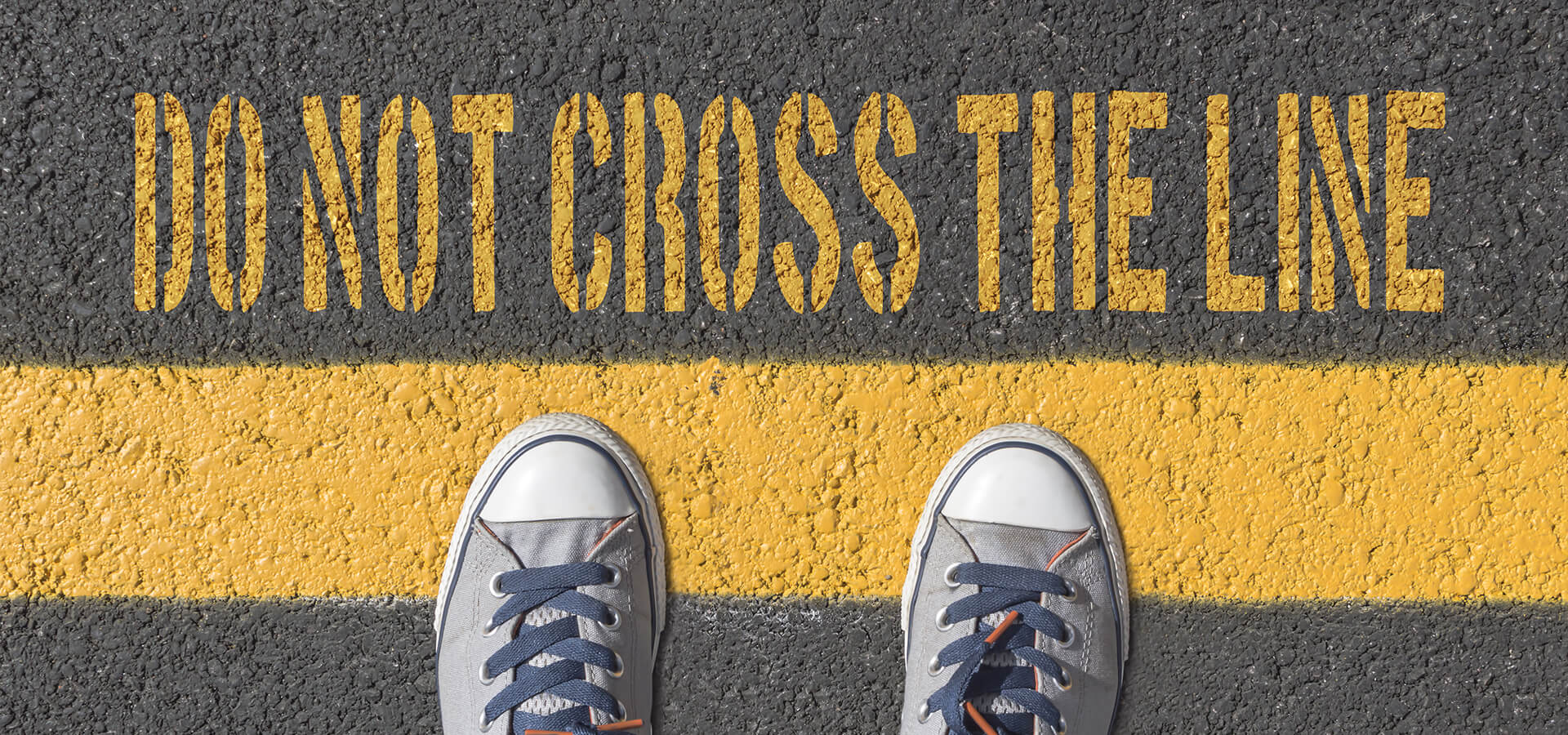Alcohol and drug addiction hurt more than just the addict or alcoholic, it hurts all the people around us. Friends, family members, significant others, all go through the pain and suffering with the addict. Learning how to set boundaries with an addict can be difficult, and can often feel painful, but boundaries are the best way to help an addict, and yourself, throughout the process of addiction and even recovery. Having poor boundaries can make you lose yourself, your freedom, and your personal space. Poor boundaries when a loved one is addicted to drugs or alcohol, can end with you feeling lied to, cheated on, and stolen from. Setting boundaries can help you and your loved one’s relationship in the long run- but how do we do it?
So…What Are Boundaries?
Boundaries are physical and emotional limits that people set for themselves as a way to prioritize their mental/emotional health and well-being. -Healthy boundaries give you a safe, supportive and mutually respectful relationship. -Unhealthy boundaries often deal with manipulation and control as a way to keep your relationship where it best suits you You might need to set boundaries if you: -Cover for or lie for your loved one -Change your beliefs or stuff your emotions to avoid conflict -Feel taken advantage of, have been lied to, had possessions or money stolen from you -Try to tell them what to do -Argue about the past
Boundaries often run on a continuum from one extreme to another- being too lenient or too rigid both can hurt your relationships- staying somewhere in the middle ground can be hard, but it is rewarding and can help keep your relationships intact. But, what boundaries can we set, and how do we stick to them?
5 Boundaries to Set With Addicts
- No using drugs or alcohol around me/in my home:
This is a very important boundary to set, letting your loved one know that you are not willing to accept them using in front of you or in your home sets an expectation. If or when this expectation is broken, letting them know they are not respecting a boundary you set with them will feel less stressful and open a line for communication. If you find them using in your home, you will know that you already set the expectation- remember when someone doesn’t respect or like your boundary, it is because it was easier to misuse and manipulate you when you didn’t have them.
- If you are arrested, I will not pay your bail or for your lawyer:
Using drugs or drinking and driving is illegal. As a recovering addict I can assure you that we know what we are doing is illegal when we are buying drugs and using drugs. Letting your loved one know that you are not willing to bail them out can help save you from arguments, money, and tears. You are not responsible for our decision to break the law.
- Do not ask for money- whether it is to put gas in your car or for a phone bill:
Giving money to a loved one struggling with addiction could be the last time you give them money. Many street drugs are cut with fentanyl, a deadly opioid, and can lead to overdose and death. Regardless of what your loved one is claiming to need money for, there is a 50/50 chance they are manipulating you. Setting a boundary by stating that you will not give them money, lets them know that you are not willing to enable them throughout there addiction. This also can put responsibility onto your loved one regarding money management and remaining employed, which can help them decide that maybe they do need treatment.
- Do not ask for money- whether it is to put gas in your car or for a phone bill:
Giving money to a loved one struggling with addiction could be the last time you give them money. Many street drugs are cut with fentanyl, a deadly opioid, and can lead to overdose and death. Regardless of what your loved one is claiming to need money for, there is a 50/50 chance they are manipulating you. Setting a boundary by stating that you will not give them money, lets them know that you are not willing to enable them throughout their addiction. This also can put responsibility onto your loved one regarding money management and remaining employed, which can help them decide that maybe they do need treatment.
- I will not lie for you:
In active addiction, many people ask their loved ones to lie for them. Whether it’s regarding missing work, missing class, or skipping plans, active addiction forces us to make up lies and half-truths. Letting your loved one know that you are not willing to participate in there manipulating of others, forces them to take responsibility for their actions.
- I will not support you using drugs or alcohol, so I cannot continue to spend time with you until you decide that you are ready to enter treatment:
Letting your loved one know that you cannot support them through active addiction, and limiting time spent around them can improve the chances that they will seek help. Letting them know that you will support your decision to enter recovery when that time comes can be all they need to hear to make the decision to change their life.
Setting boundaries can help your loved one move towards recovery. Deciding to recover from alcohol or drug addiction can be the most rewarding and best choice of your life. Let go and let’s chat!







